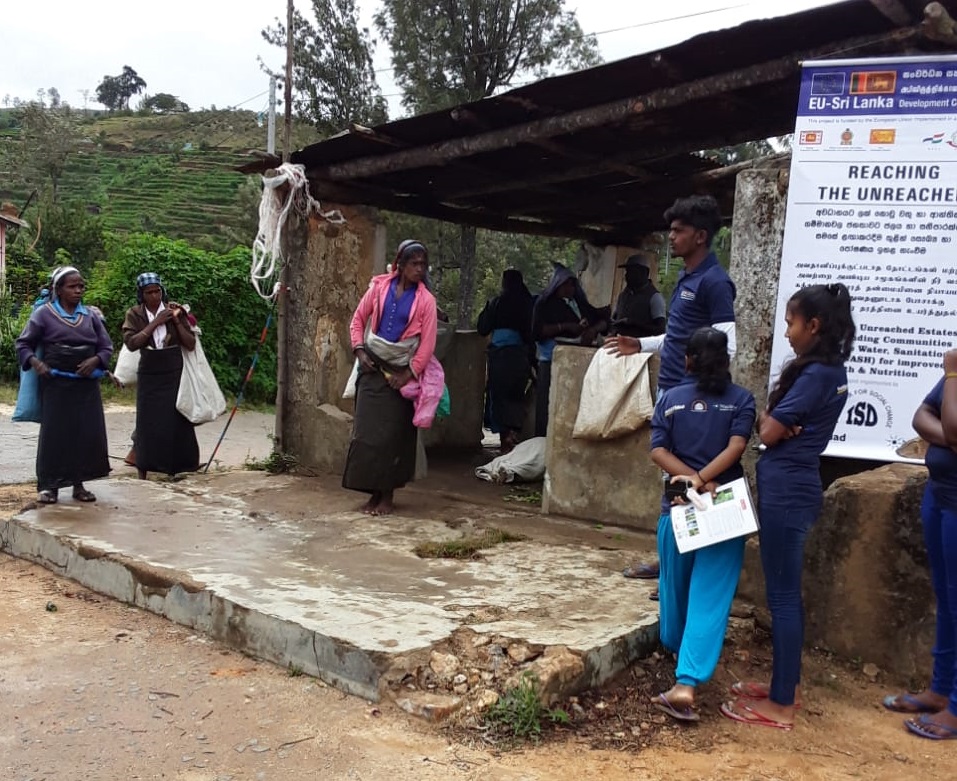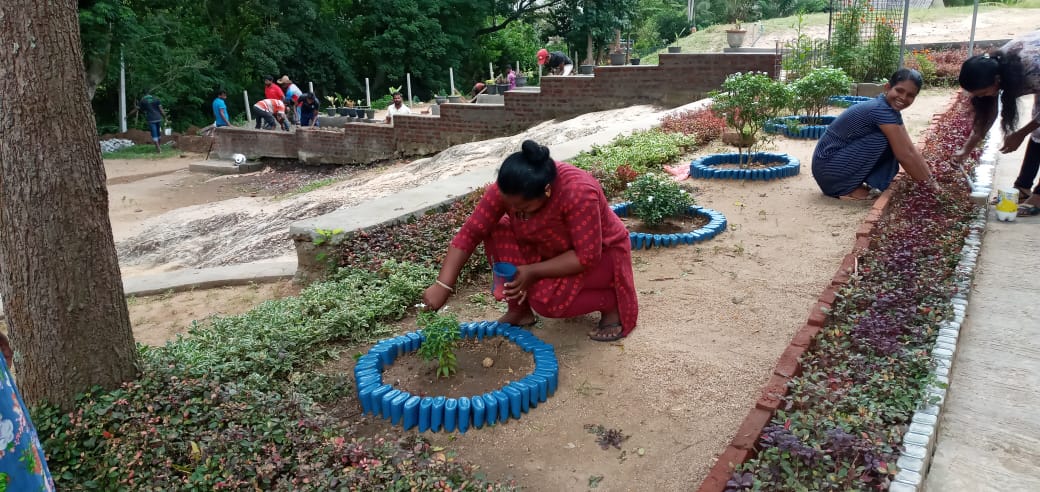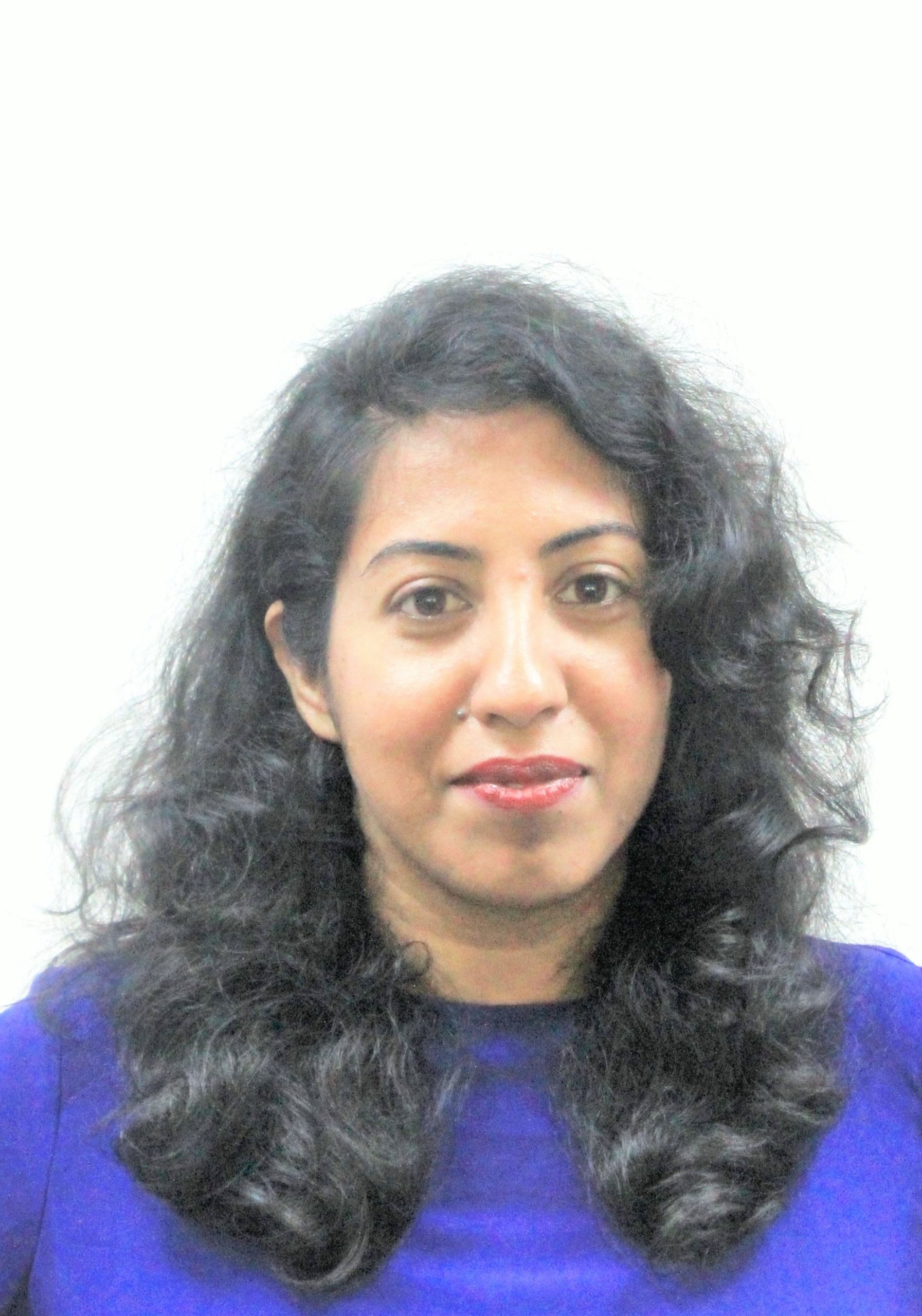Amid the 2nd wave of COVID-19 hit Sri Lanka, the Youth Health Volunteers (YHV) in Ragala, a tea estate in Nuwara Eliya, Sri Lanka, are busy with organising handwashing demonstrations and tree planting in catchment areas. The ongoing COVID-19 pandemic has emphasised the need for access to sustainable sanitation services, proper handwashing facilities and the need to adhere practices on good hygiene.
In spite of Sri Lanka being the best in South Asia with 92% sanitation coverage, the estate sector has low provisions in WASH facilities. The estates are the home for most Up-Country Tamils, the descendants of indentured labourers brought during the 19th century under the British empire. Although government-initiated development projects attempt to enhance the wellbeing of the estate community, they fall behind in many development indicators including nutrition, education and access to health services. As a result of the organisational structure of estates, the estate community depend on estate management for education, health and welfare facilities. Thus, the inequality in accessing resources and the use of those persist in the estate sector.
The Youth Health Volunteers (YHV) programme is an initiative by the Institute of Social Development (ISD) which focuses on behavioural change activities in WASH under the Reaching the Unreached (RTU) project funded by the European Union. Recognising the increased youth engagement at estates, we designed the YHV programme to increase the sustainability of behavioural change initiatives at estates. The main objective is to enhance personal capacities of youths in age 16-24 years to streamline WASH behaviour and ensure sustainability of the RTU-ISD interventions at project locations.
Programme successes
The volunteer programme has been a great route to spread WASH messages through the community, and it has provided a platform for young people to become influencers in WASH. During the 2nd wave of COVID-19 in the country, over 200 volunteers have been taking initiatives to disseminate health information with health officials and lead wide range of community awareness events.
The inclusive approach of the YHV programme is vital to its success. Youth participation is central to various stages and levels of the programmes, for example:
- Youth who reside in the community identify WASH (and related) challenges and opportunities in the area
- Their ideas feed into WASH programme activities – they are provided a platform to develop their ideas and turn them into actions
- Their skills are employed beyond volunteer WASH initiatives, for example, paid volunteer opportunities to carry out household data collection and data entry
Two examples of initiatives developed by youth:


Broader benefits of this programme for youth include enabling trained volunteers to collaborate with the key stakeholders such as the Plantation Development Trust, which is the government body for social development of estate community, estate management and relevant stakeholders on health, nutrition and environment initiatives. Also, it is promoting youth leadership including increased girls’ decision making as catalysts in their communities to transform behaviour and lifestyle, creating a healthy lifestyle and environment and enhancing skills on communication and networking, and personal development.
Programme challenges
Despite the success of the programme, there are foreseen challenges. First is the drop out of volunteers due to the internal labour migration from the estates to urban areas. Second is the lack of resources to sustain future activities. This will require youth to use their established networks for future activities. Third is the prevailing hierarchical patriarchal social set up in plantations where youth have limited decision making opportunity without facilitators.
Way forward
One way to address these challenges and ensure long way for estate youth, I believe development agencies, who are working in estate sector must act together. Instead of donor centered projects, the increased sharing of project outcomes and lessons learnt can enhance community centered development. In that way, trained and skilled youth under the YHV will have an opportunity to involve in the development process of their lives as well as their community.




